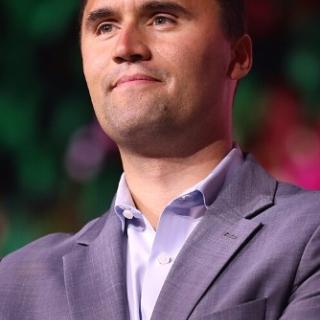This article first appeared on Substack
How can we effectively push back on the Jimmy Kimmel suspension, and its far larger threats to free speech? After Kirk’s shooting, Kimmel posted “can we just for one day agree that it is horrible and monstrous to shoot another human.” And sent his family’s “love to the Kirks and to all the children, parents and innocents who fall victim to senseless gun violence.” But that didn’t seem to matter, because Kimmel also dared to point out that the Trump administration was using the assassination to score political points. Trump had already warned in July that Kimmel should be the next to be fired after Stephen Colbert. After Kimmel spoke out following the assassination, Trump FCC head Brendan Carr threatened to revoke the licenses of stations carrying Kimmel’s show. Nexstar and Sinclair then jumped in saying they wouldn’t air Kimmel’s episodes. And ABC/Disney caved. Vladimir Putin and his oligarchs would be proud.
Hearteningly, Americans are responding with appropriate outrage. The cancellation site of Disney + streaming service has reportedly crashed from people ending their subscriptions. Conservative-leaning comedians have spoken out. Common Cause has launched a Turn Off Disney campaign and FreePress.Net has started a call-in campaign. Even Republican Senator Ted Cruz called it “unbelievably dangerous for government to put itself in the position of saying we’re going to decide what speech we like and what we don’t, and we’re going to threaten to take you off air if we don’t like what you’re saying.”
The question is how to sustain the pushback, which means building the broadest possible coalition of fellow-citizens who are outraged, whether or not they love Kimmel’s jokes and stands. And how to coordinate as many organizations as possible working together to promote approaches like:
Boycotting ABC/Disney, including theme parks, cruises, movies, and streaming and TV channels like Disney+, ESPN, and Hulu. Asking international groups to do the same.
Boycotting local stations of ABC and NextStar and Sinclair. This could be particularly valuable given Sinclair’s longtime role demanding that their stations air their right wing segments and talking points (plus demanding Kimmel donate to Turning Point or Kirk’s family). Public protests at the affiliates give people ways to act within their own communities, pressuring them to carry Kimmel again. They can also spark general local coverage, along the lines of the Tesla Takedown campaigns.
Targeting and pressuring station advertisers, both national and local. Local groups can publicly announce targets. People can find the advertisers by watching the local broadcasts. There’s also a crowdsourced map where people can take pictures of TV ads and then upload them with links to which advertiser and which station.
Promoting all these actions on social media and in every other way. Hashtags circulating include #BoycottDisney, #CancelDisney and #CancelDisneyPlus, #CancelHulu,#BoycottSinclair and #IStandWithJimmyKimmel. Here’s a link to related cartoons.
Successful boycotts and corporate campaigns need coalitions that act together and persist. Ideally groups should create or decide on common platforms to direct people. For instance, someone launched a boycottdisneyabc.com site, but it’s not connected with any groups and it’s not clear who controls it or whether any groups are using it. Given that millions of Americans are outraged, Kimmel’s suspension presents both a challenge to democracy, and an opportunity to keep this country one where governments can’t just shut down people who disagree with them.
---------------------------------------------------
Paul Rogat Loeb is the author of Soul of a Citizen and The Impossible Will Take a Little While, with nearly 300,000 in print between them. Follow his Substack here.



